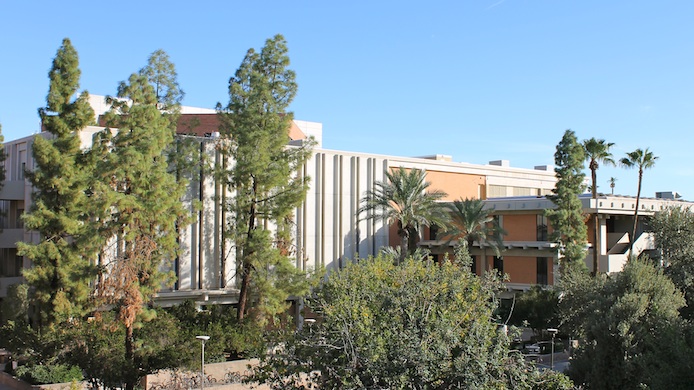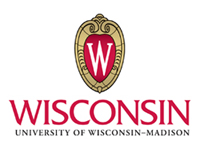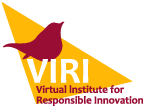The CNS-ASU Network

CNS-ASU is a network of institutions and individuals administratively headquartered at Arizona State University.
As a Nano-scale Science and Engineering Center (NSEC), the center's intellectual merit comes from the large-scale, interdisciplinary ensemble that underpins it. Over the course of its two grants, CNS-ASU has worked with seven major collaborating institutions in addition to scores of other partners, collaborators and consultants.
Sponsors
-
National Science Foundation

CNS-ASU research, education and outreach programs are sponsored by the National Science Foundation under cooperative agreement #0937591.
Sub-Contractors
-
Georgia Institute of Technology

Georgia Tech houses an internationally-recognized cluster of expertise in science and technology policy, including nanotechnology research and innovation systems assessment, which involves data-mining of large-scale databases as well as other qualitative and quantitative methodologies utilized in CNS-ASU's Research and Innovation System Analysis (RTTA 1).
Georgia Tech's School of Public Policy is also home to the Technology Policy and Assessment Center (TPAC). TPAC specializes in innovation studies and models, the evaluation of research and development, and science and technology policy, forecasting and assessment. TPAC faculty pioneered the Research Program Mapping and Public Value Mapping methods that CNS-ASU employs and extends. Georgia Tech also hosts three Nanoscale Interdisciplinary Research Teams (NIRTs) and ranks in the top 12 institutions globally for nanotechnology citations (1992-2002).
-
University of Wisconsin-Madison

UW-Madison's commitment to scholarly and public engagement on the role of science and technology in society is manifest in its Holtz Center for Science and Technology Studies. In partnership with the Holtz center, the NSEC for Templated Synthesis and Assembly at the Nanoscale supports a core research program investigating NSE and society, and a graduate and postdoctoral fellows program that brings together outstanding NSE-and-society researchers from around the world.
UW-Madison has also developed a Nanotechnology in Undergraduate Education program to prepare graduate students to introduce NSE-and-society materials into their future undergraduate teaching. Wisconsin's science journalism faculty explores public attitudes and media coverage of science and technology under CNS-ASU's RTTA2 research program on Public Opinion and Values. UW's work here has included a national survey (in partnership with Cornell and Penn State; NSF SES #0403783) of public attitudes about NSE.
Institutional Collaborators
-
University of California, Santa Barbara

The second NSF-funded Center for Nanotechnology in Society in the United States is located at the University of California, Santa Barbara (CNS-UCSB). In the fall of 2011, CNS-ASU and CNS-UCSB collaborated to jointly host the third annual meeting of the Society for the Study of Nanoscience and Emerging Technologies (S.NET). S.NET is a young, international professional society created in part out of NSF's Nanotechnology in Society Network.
The S.NET conference was hosted physically at Arizona State University and virtually by CNS-UCSB. ASU's David Guston and UCSB's Barbara Herr Harthorn chaired the program committee. The conference drew more than 200 registrants from over 20 countries, and presented over 45 panels and other activities. The S.NET conference provided ample evidence of a flourishing international community of scholars engaged in describing, theorizing and debating the societal implications of new technologies.
-
Nanoscale Informal Science Education Network

The Nanoscale Informal Science Education Network (NISE Net) is a national community of researchers and informal science educators dedicated to fostering public awareness, engagement and understanding of nanoscale science, engineering and technology. CNS-ASU is a core partner of NISE Net enhancing informal science education with expertise on the societal aspects of NSE.
Through CNS-ASU's influence, social and ethical issues are now squarely at the center of new nano mini exhibits that NISE Net has developed for display at science museums around the nation. NISE Net also commits resources for CNS-ASU personnel to train science museum staff and volunteers in how to discuss social and ethical issues with museum visitors.
-
The Consortium for Science, Policy and Outcomes

CNS-ASU is closely affiliated with the Consortium for Science, Policy and Outcomes (CSPO), the institutional home for science and technology policy scholarship and engagement at ASU. CSPO is an intellectual network aimed at enhancing the contribution of science and technology to society's pursuit of equality, justice, freedom and overall quality of life.
CSPO creates knowledge and methods, cultivates public discourse and fosters policies to help decision-makers and institutions grapple with the immense power and importance of science and technology as society charts a course for the future.
Academic Network
-
Virtual Institute for Responsible Innovation

The Virtual Institute for Responsible Innovation (VIRI) was created to accelerate the formation of a community of scholars and practitioners who, despite divides in geography and political culture, will create a common concept of responsible innovation for research, training and outreach – and in doing so contribute to the governance of emerging technologies under conditions dominated by high uncertainty, high stakes, and challenging questions of novelty.
VIRI is supported by the National Science Foundation under collective agreement #1257246. VIRI is housed at CNS-ASU.


